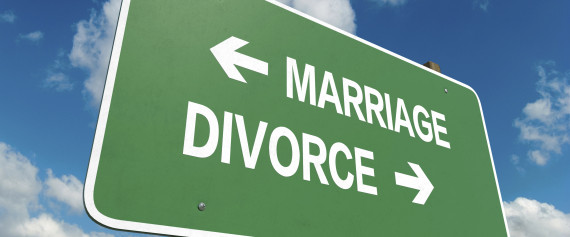
It's a situation so many young adults will experience at some point in their lives: All your friends and acquaintances seem to be getting married, and you still can't figure out how to get dressed up like a big kid for their weddings. Sure, some people view their young peers' marriages as happy, normal events. But if you feel a little left in the dust when it comes to the marriage thing, you're not only alone -- in fact, you've got more company than ever. A study from the National Marriage Project found that more and more young adults today are delaying marriage because they see it as a capstone that comes after achieving one's life goals -- professional and otherwise.
And younger generations aren't the only ones staying single. According to the U.S. Census, the number of couples aged 50 and over who simply live together but are not married rose from 1.2 million in 2000 to 2.8 million people in 2010. Whether you're young or old, it is OK -- in some cases, even beneficial -- to never get married. Here are 10 valid reasons that remaining unhitched could actually leave you better off financially, mentally and even physically.
1. Most people aren't in a hurry to get married anymore.
According to Pew statistics, back in the early 1980s, the median age for marriage was 25 for men and 22 for women. But in 2011, the median ages for first marriages hit all-time highs of 29 for men and 27 for women. The report credits this change to, among other things, the fact that couples no longer feel the need to be married to become parents and the "competition from other lifestyles," like living alone or living with partners. So, there's no need to stress about not getting married -- everyone else is staying single too.
2. In fact, many people feel there aren't many advantages to being married.

A 2010 Pew survey states that, by and large, single people do not feel married people have many advantages in terms of a "fulfilling sex life, being financially secure, finding happiness and having social status." And 24 percent of those who do feel marriage makes a positive difference in life say that when it comes to work, getting hitched can significantly hinder one's chance at getting ahead in one's career.
3. For men, being married could be connected to being overweight.
It's a tired cliché that women feel they can "let themselves go" once they get married, but a recent study published in the journal Families, Systems & Health shows that men are more likely to be the heavier ones in a marriage. After monitoring the eating habits, physical activity and the weights of 2,300 young men in the Midwest, married men were 25 percent more likely to be overweight than men who were single or in a committed relationship. And according to the study, about 60 percent of married men were overweight compared to about 40 percent of married women.
4. Marriage can present a slew of financial problems.
Many older people are choosing to live together and not get married due to financial reasons. In some states, laws require those in a marriage to be responsible for their spouse's debt, and for the elderly, that could mean a variety of expensive medical bills. And depending on what state you live in, nursing home fees can cost more than $14,000 a month -- money that some elderly people might like to see go to their children or grandchildren.
Another point: Getting married can cause a single parent to lose student aid for their child. Mark Kantrowitz, senior vice president of Edvisors Network, explained to The New York Times a scenario in which a parent makes $50,000 a year and has a kid at college receiving $20,000 in grants. If that parent gets remarried, he or she could stand to lose up to $3,000 in aid per every $10,000 of annual income that the new stepparent contributes.
5. Marriage can seem like an outdated institution, and some people just don't want to fit into that mold.
When The Guardian interviewed a group of millennials about their thoughts on marriage, many had a dismal outlook. Peter, a 25-year-old from New York City, said he was not getting married. "Marriage is a conservative institution that organizes child-rearing and defines commitment, relationship and love," he said. "In the United States' current social climate, such a metric is quite popular, and therefore, relevant. However, marriage is expensive and likely to fail."
This sentiment has become more apparent as some gay couples who now have the choice to marry decide not to. Elizabeth Wood, a 77-year-old lesbian, told The New York Times that as a gay person, she's always felt like a "quasi-outlaw" and that taking on an age-old tradition like marriage would be forsaking her lifelong "edgy nonconformist streak."
6. Getting married can put your friendships at risk.

While this probably applies more to folks with mostly single friends, many people sense strains in their friendships after they get married. In a New York magazine piece, Amy Sohn highlights the ways some couples lose interest in their social lives after getting married:
"Ever since I got married, my friends have treated me like I contracted a communicable disease. The dinner invites stopped, and the late-night phone calls, and then I started hearing of hot rooftop parties to which I hadn’t been invited. Of course, I changed a little, too. Without an incentive to man-hunt, I was less interested in going to parties and bars."
And wedding planner Sandy Malone opined in a Huffington Post blog that people tend to lose at least one close friend after getting married, as a husband or wife fills that role. When someone spends every waking hour with their spouse, that can lead to neglecting the other people in their life. Which brings us to our next point...
7. Marriage can lead to the risky habit of relying on one individual for every emotional need.
Bella DePaulo, a social psychologist and author of "Singled Out: How Singles are Stereotyped, Stigmatized, and Ignored, and Still Live Happily Ever After," told The Huffington Post that many married couples make the mistake of turning their spouse into a "Sex and Everything Else Partner." They look to them for all sources of contentment, like "companionship, intimacy, caring, friendship, advice, the sharing of the tasks and finances of household and family, and just about everything else." This creates an unrealistic "cultural fantasy" that ultimately results in disappointment and unhappiness.
"One of the things that is so interesting about this is that it is typically seen as a good and romantic thing," says DePaulo. "Think of all the popular songs with lyrics like 'you are my everything.' There is little recognition of the risks of putting all of your relationship capital into just one stock -- your partner."
8. These days, a happy marriage requires a serious commitment of time and energy that can be hard to maintain.
Eli J. Finkel, a psychological researcher who studies human relationships, concludes that in marriages today, "individuals who can invest enough time and energy in their partnership are seeing unprecedented benefits." And how much is enough time? According to sociologists Jeffrey Dew and W. Bradford Wilcox, married couples who spend time alone talking or doing an activity together at least once a week were 3.5 times more likely to be happier than those who did not.
Seems pretty easy to achieve, except for the fact that most Americans are extremely busy. Dew also reported that among married couples without children, time spent with each other's spouse declined from 35 hours to 26 each week. Much of this was due to each person needing (or wanting) to spend more time at work. And those with children saw a decrease of 13 hours per week to nine, likely due to an increase in time spent with their children.
The fact that good marriages require more time and effort than ever is further validated by the differing divorce rates between wealthy couples and their less affluent counterparts. Studies show that lower-income couples get divorced more, and part of the blame lays in those couples' lack of resources, time and otherwise, says Frankel.
9. And, as dim as it sounds, plenty of marriages in this country end up in a divorce anyway.

For almost every couple, with marriage comes the potential for divorce. And divorces can be tricky and very expensive. In a Pew Research study conducted on 122 people who lived with a partner in Columbus, Ohio, 67 percent of middle-class participants said despite being excited about marriage, they worried about "the social, legal, emotional and economic consequences of divorce."
And the some divorce statistics in the United States make it seem pretty grim for those who believe that marriages will last forever. It's estimated that about 40-50 percent of first marriages and 60 percent of second marriages will end in divorce. However, research on this varies. The CDC writes that the chance "of a first marriage reaching its 20th anniversary was 52% for women and 56% for men in 2006 to 2010," and this stays consistent with divorce trends through the past three decades. Also, it seems that the younger you get married, the more likely you are to get a divorce. The estimated average age for a divorce today is 30 years old.
10. Plus, there's a good alternative to marriage. It's called a civil union or a domestic partnership.
If you want to form a meaningful (and official) bond with your significant other, but you just don't like the idea and practice of marriage, you always have the option of entering a civil union or a domestic partnership. While these are mostly popular with gay couples, straight couples often have these options as well. For example, when Illinois passed its civil union bill in 2010, state Rep. Greg Harris (D), the bill's chief sponsor, made sure that heterosexual couples were able to have access to the option. And civil unions could also help senior citizens greatly. By opting into a civil union instead of remarrying, they can hold onto their survivor's benefits from Social Security or pension benefits.
There are some restrictions though, based on where in America you live. Right now, only Colorado, Hawaii, and Illinois offer civil unions, which provide state-level spousal rights to both straight and gay couples. New Jersey offers the same deal, but only to same-sex couples. Nevada, Oregon and Washington offer all unmarried couples the option of domestic partnership which gives them "nearly all state-level spousal rights," and Maine, Wisconsin and the District of Columbia offer domestic partnerships with "some state-level spousal rights" to unmarried couples. Ultimately, the beauty of a civil union or domestic partnership is that it can offer both straight and gay couples the benefits that traditionally married couples receive without having to actually get married, an act that some may find "patriarchal" and "anachronistic."
